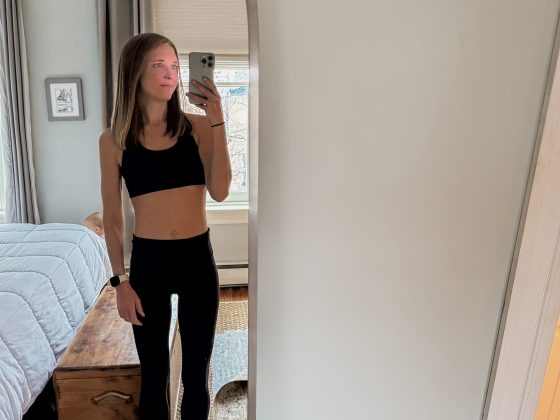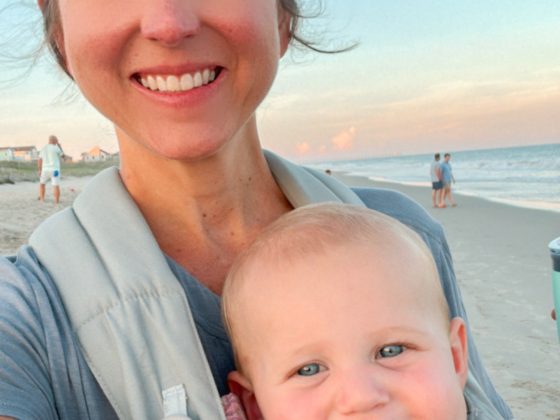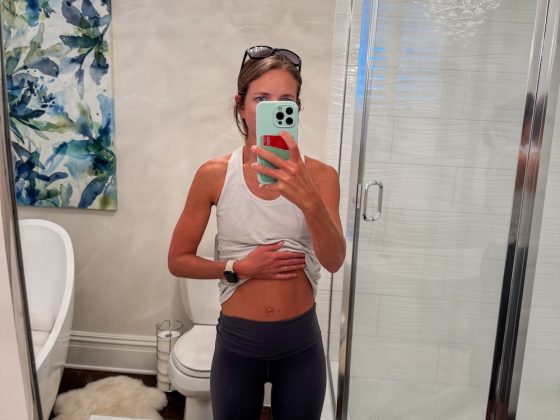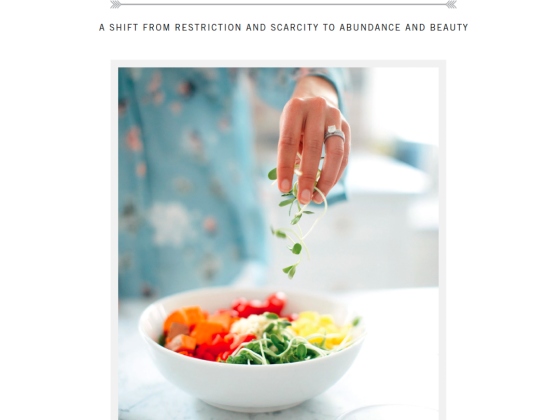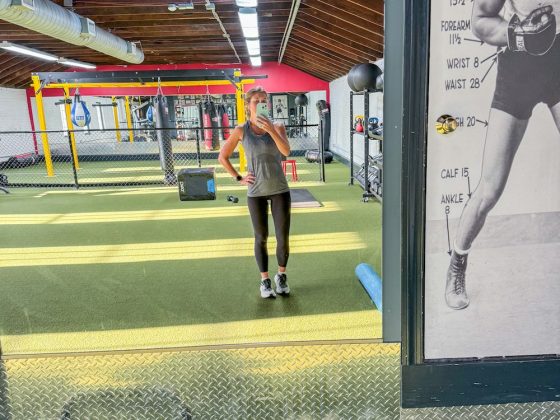By Sara McGlothlin
I would consider myself deeply immersed in the wellness world, both from a personal and professional perspective. Not only do I love learning about nutritional trends, new workouts, mindfulness techniques and other self-care tips, but for the past decade, I have revolved my career around helping others get healthier. Wellness is my jam, so when I got pregnant, I of course aspired to live out the forty weeks as “well” as I could. I dove into learning all that I could when it came to both prenatal and postnatal topics. When asked if I would be breastfeeding or formula feeding my baby after he was born, I answered with the former quite emphatically (naturally). That was the healthy choice, right?
From our very first attempt, my son Mason was a good eater. He never had any problems latching, and my milk came in less than a week after he was born. Additionally, I loved breastfeeding – the bond it created between us – and I knew it (i.e. the oxytocin) was also helping my mental health. But from his very first pediatrician appointment, ensuring he was getting enough ounces at each feeding became somewhat of a concern, so I made the decision to try to pump as much as possible in order to bottle feed. This not only would help calculate his total daily intake, but also had an added bonus of allowing my husband to feed him as well. We did have to supplement with some formula in those early days, and while I know that “fed is best,” I still felt guilty and ashamed that my body couldn’t provide what my baby needed.
I was not a fan of pumping (is anyone?), but I viewed it as something I was simply doing for my child. I would wake up in the middle of the night to pump (while my husband would graciously give his nighttime bottles), and then again right before my son woke up. I would then proceed to pump multiple times during the day. I remember a little over a month after Mason was born, I had to go out of town for work. I pumped tirelessly to make sure he had enough bottles of breastmilk while I was away. I remember sending my husband a text of about 10 bottles lined up, proclaiming that I had never been so proud of my boobs. It was at that moment when I realized I had embraced breastfeeding with the same perfectionist tendencies I put towards everything else in my life. But I kept at it.
Being a business owner, I had envisioned my maternity leave in the months leading up to my due date. I had built a great team, and knew my husband would be stepping in a bit more to help. Long story short, nothing went according to plan, and I never got a break. I was answering emails in my hospital bed, on conference calls days after Mason’s delivery, attending team meetings while wearing my breast pumps. I knew the stress (on top of the stress that is becoming a new mom) was hurting my milk supply. But I kept at it.
Then one morning, something shifted. I had about 30 minutes to spend with my baby before having to be somewhere, and ten of those 30 minutes were spent washing pump parts. The week prior, I had experienced anxiety about needing to pump, knowing that pumping was going to prevent me from being fully present with my son. If I was wearing them, it would limit my ability to change his diaper, pick him up, or play with him during tummy time. What am I doing?? I thought to myself. The early days are so precious, and this time was tainted with the pressure to breastfeed. It wasn’t until I had a long conversation with my life coach that I realized it was time to give myself permission to stop. A few days later would mark Mason turning 3 months, and I considered that my finish line. I fully believe that this has been the best decision for me and my family, but I am still on the brink of tears as I type this. Why? Where did this societal pressure to breastfeed come from. Yes there is literature and research showing that mother’s milk is best in the first 9 months to a year of a baby’s life, but there has to be other factors to consider.
The number one consideration – as with anything health related – is what works for YOU and/or your family. I was aware the entire time that I shouldn’t be comparing my experience to anyone else’s, but that didn’t always prevent me from doing so. Clearly my choice was causing my mental health to suffer. I didn’t feel like a truly present parent, and instead of feeling open and excited when my husband would suggest an activity for our new family, my mind immediately started calculating the logistics of my pumping schedule. I also beat myself up when my milk supply felt low. I felt depleted and defeated, and while the emotions around deciding to stop are still complicated, I have conviction it is the right one.
On the night I decided to stop, my husband said something that changed the way I thought about it: “I understand there is a loss associated with this decision, the feeling that he isn’t going to need you in this way anymore, but he is going to need you physically in other ways, and just as importantly, spiritually as well for the rest of your life.” That is something to celebrate!


